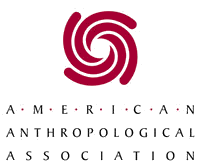Related Research Articles

Anthropology is the scientific study of humanity, concerned with human behavior, human biology, cultures, societies, and linguistics, in both the present and past, including past human species. Social anthropology studies patterns of behavior, while cultural anthropology studies cultural meaning, including norms and values. A portmanteau term sociocultural anthropology is commonly used today. Linguistic anthropology studies how language influences social life. Biological or physical anthropology studies the biological development of humans.

Cultural anthropology is a branch of anthropology focused on the study of cultural variation among humans. It is in contrast to social anthropology, which perceives cultural variation as a subset of a posited anthropological constant. The portmanteau term sociocultural anthropology includes both cultural and social anthropology traditions.

The American Anthropological Association (AAA) is an organization of scholars and practitioners in the field of anthropology. With 10,000 members, the association, based in Arlington, Virginia, includes archaeologists, cultural anthropologists, biological anthropologists, linguistic anthropologists, linguists, medical anthropologists and applied anthropologists in universities and colleges, research institutions, government agencies, museums, corporations and non-profits throughout the world. The AAA publishes more than 20 peer-reviewed scholarly journals, available in print and online through AnthroSource. The AAA was founded in 1902.
An anthropologist is a person engaged in the practice of anthropology. Anthropology is the study of aspects of humans within past and present societies. Social anthropology, cultural anthropology and philosophical anthropology study the norms and values of societies. Linguistic anthropology studies how language affects social life, while economic anthropology studies human economic behavior. Biological (physical), forensic and medical anthropology study the biological development of humans, the application of biological anthropology in a legal setting and the study of diseases and their impacts on humans over time, respectively.

A learned society is an organization that exists to promote an academic discipline, profession, or a group of related disciplines such as the arts and science. Membership may be open to all, may require possession of some qualification, or may be an honour conferred by election.

Alfred Reginald Radcliffe-Brown, FBA was an English social anthropologist who developed the theory of structural functionalism.

Visual anthropology is a subfield of social anthropology that is concerned, in part, with the study and production of ethnographic photography, film and, since the mid-1990s, new media. More recently it has been used by historians of science and visual culture. Although sometimes wrongly conflated with ethnographic film, visual anthropology encompasses much more, including the anthropological study of all visual representations such as dance and other kinds of performance, museums and archiving, all visual arts, and the production and reception of mass media. Histories and analyses of representations from many cultures are part of visual anthropology: research topics include sandpaintings, tattoos, sculptures and reliefs, cave paintings, scrimshaw, jewelry, hieroglyphics, paintings and photographs. Also within the province of the subfield are studies of human vision, properties of media, the relationship of visual form and function, and applied, collaborative uses of visual representations.
Alpha Kappa Delta (ΑΚΔ) is an international honor society of sociology. Alpha Kappa Delta is a non-secret, democratic organization founded in 1920 by Dr. Emory S. Bogardus. It is dedicated to encouraging and stimulating scholarship while promoting the scientific study and advancement of sociology. Throughout the past eight decades, Alpha Kappa Delta has grown to over 80,000 scholars and now has more than 490 chapters established around the world.
The Canadian Association for Physical Anthropology/ L'Association Canadienne D'Anthropologie Physique (CAPA/ACAP) is a learned society of international scholars and students of Physical Anthropology in Canada. The Associations's mission is to promote and increase awareness and understanding of physical (biological) anthropology among its membership and to support institutions, agencies, and the public at large. The Association is guided by a constitution and code of ethics, holds annual meetings, distributes biannual newsletters to its membership, and offers funding opportunities for student members. The current president in 2017 is Dr. Ian Colquhoun.
The Master of Public Health or Master of Philosophy in Public Health (M.P.H.), Master of Science in Public Health (MSPH), Master of Medical Science in Public Health (MMSPH) and the Doctor of Public Health (Dr.P.H.), International Masters for Health Leadership (IMHL) are interdisciplinary professional degrees awarded for studies in areas related to public health. The MPH degree focuses on public health practice, as opposed to research or teaching. Master of Public Health programs are available throughout the world in Schools of Public Health, Programs in Public Health, Medical Schools, and Schools of Public Affairs. MPH degrees, in addition to including a core curriculum, will usually also let students pursue a specialization in a specific field, such as epidemiology, biostatistics, or health management.
The Society for Applied Anthropology (SfAA) is a worldwide organization for the Applied Social Sciences, established "to promote the integration of anthropological perspectives and methods in solving human problems throughout the world; to advocate for fair and just public policy based upon sound research; to promote public recognition of anthropology as a profession; and to support the continuing professionalization of the field." Members include academic as well as practicing and applied anthropologists. The Society is unique among professional associations in membership and purpose – and in representing the interests of professionals in a wide range of settings including academia, business, law, public health, medicine, environment, and government. The unifying factor is a commitment to making an impact on the quality of life in the world. The Society publishes two journals: Human Organization and Practicing Anthropology. The SfAA was founded in 1941 and has maintained its status as an important resource for practicing and academic anthropologists alike.
The Society for Anthropological Sciences (SASci) is a scholarly association formed in 2004 to promote the development of empirical theory and methods in anthropology.
The American Association of Biological Anthropologists (AABA) is an international professional society of biological anthropologists, based in the United States. The organization publishes the American Journal of Physical Anthropology, a peer-reviewed science journal. It was formerly the American Association of Physical Anthropologists (AAPA), but changed its name after a series of votes between 2018 and 2020.
Legal anthropology, also known as the anthropology of laws, is a sub-discipline of anthropology follows inter diciplinary approach which specializes in "the cross-cultural study of social ordering". The questions that Legal Anthropologists seek to answer concern how is law present in cultures? How does it manifest? How may anthropologists contribute to understandings of law?

The Association for Slavic, East European, and Eurasian Studies (ASEEES) is a scholarly society dedicated to the advancement of knowledge about the former Soviet Union and Eastern and Central Europe. The ASEEES supports teaching, research, and publication relating to the peoples and territories within this area.
Anthropology, or Anthropologie in some languages, refers primarily to a science and arts. An Anthropologist practices anthropology. Anthropological is "having to do with anthropology." This word set may refer to:
The Materials Research Society (MRS) is a non-profit, professional organization for materials researchers, scientists and engineers. Established in 1973, MRS is a member-driven organization of approximately 14,000 materials researchers from academia, industry and government.

The Association for Applied Psychophysiology and Biofeedback (AAPB) was founded in 1969 as the Biofeedback Research Society (BRS). The association aims to promote understanding of biofeedback and advance the methods used in this practice. AAPB is a non-profit organization as defined in Section 501(c)(6) of the Internal Revenue Service Code.
Mary Margaret Clark (1925–2003) was an American medical anthropologist who is credited with founding the sub-discipline of medical anthropology.
Anthropology is the study of various aspects of humans within past and present societies. This study is practiced in multiple countries, each of whom has their own history of how anthropology has developed in their respective countries.
References
- 1 2 Australian Anthropological Society. 1995. 'The Society'. Australian Anthropological Society Newsletter. #62. December, 1995. p2.
- ↑ Dwyer, Peter D. (2005) 'Coming of Age in Australia: The First AAS Newsletter'. Australian Anthropological Society Newsletter. #100. December, 2005. pp.1-3.
- ↑ Australian Anthropological Society website. http://www.aas.asn.au. Accessed 16/6/09.